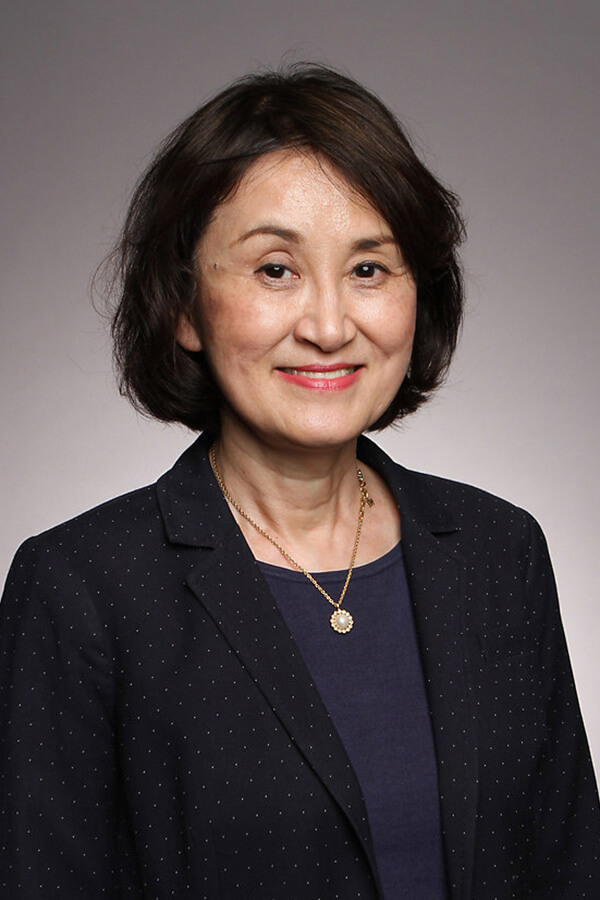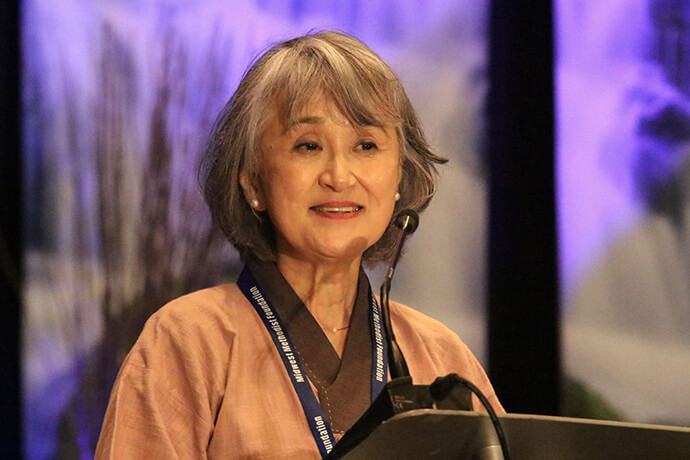Key points:
- Early years of cross-cultural ministry were often confusing or painful, but the Rev. KyungHae Anna Shin writes that she came to see that her difference wasn’t a limitation, but a gift.
- Life in Christ is always cross-cultural, as Jesus crosses every boundary.
- Choosing to love more and fear less has led to transformation in herself and others, she writes.

Photo courtesy of the author.
Commentaries
From the very beginning of my ministry, I was appointed to cross-cultural/cross-racial settings.
No one ever talked about this in seminary or at ordination. But it didn’t take long for me to realize that I was different: a Korean pastor serving a predominantly white congregation.
The way I spoke English, the way I thought and related to others, the way I communicated — and even the way I kept silence — none of it fit easily into the dominant mold.
I hadn’t fully understood how much of me had been shaped by culture — or by the invisible force of privilege — until it clashed with another way of being. Simply put, I didn’t know what I was up against.
Those early years were confusing and sometimes painful. I often wondered why I had to explain myself so much. There were lonely moments when I questioned if my call would truly be received.
But over time — and only by God’s grace — I began to see that my difference was not a limitation. It was a gift, especially in a church that aspires to become a beloved community. Grace was inviting me to become who I truly am.
Through this journey, I discovered not only who I was as a pastor, but as a Korean, an immigrant, a mother, a wife — and a beloved child of God. The more I embraced my identity, the more open I became to others. More compassionate. More curious. More willing to hold differences.
Cross-cultural ministry taught me that love means making room. Room for others. Room for truth. Room for transformation.
That kind of love requires trust in the goodness of God. It challenges us to see the image of God in every person, even when they don’t yet see it in us.
Here’s what I’ve come to believe: Life in Christ is always cross-cultural.

Diversity, equity and inclusion are not just secular ideas; they are at the heart of the Gospel. They are God’s plan for this beautiful, complex world. It’s how the Body of Christ breathes. It’s what the kingdom of God looks like.
Jesus crosses every boundary — between cultures, classes, heaven and earth, even between us and God.
A colleague who retired some years ago advised, “love more, fear less.” It’s tempting to let fear lead, to play it safe and avoid hard conversations. But grace has taught me that fear may preserve me for a moment, but only love can free me for the journey ahead.
Subscribe to our
e-newsletter
Whenever I chose to love more — to lean in rather than pull away; to speak hard truths, not knowing who would follow; to apologize first, even when I believed I was right — I saw transformation. Not just in others, but in myself.
And I’ve discovered another grace along the way: the joy of receiving. I had forgotten how amazing it is to witness others offering their gifts to us. The greatest joy in ministry is found in mutuality — in letting others love, care and shape us, too.
I stand here today because of that grace. It has carried me. Humbled me. Changed me.
Wherever you are in ministry: love more, fear less.
Love the work — even when it stretches you. Love the people — even when they challenge you. Love yourself — as one made in God’s image.
And fear less. Not because there’s nothing to fear, but because God’s grace is immeasurable.
And it is enough.
Shin retired July 1 as an elder in the Northern Illinois Conference.
News media contact: Julie Dwyer or Heather Hahn at newsdesk@umnews.org. To read more United Methodist news, subscribe to the free UM News Digest.


